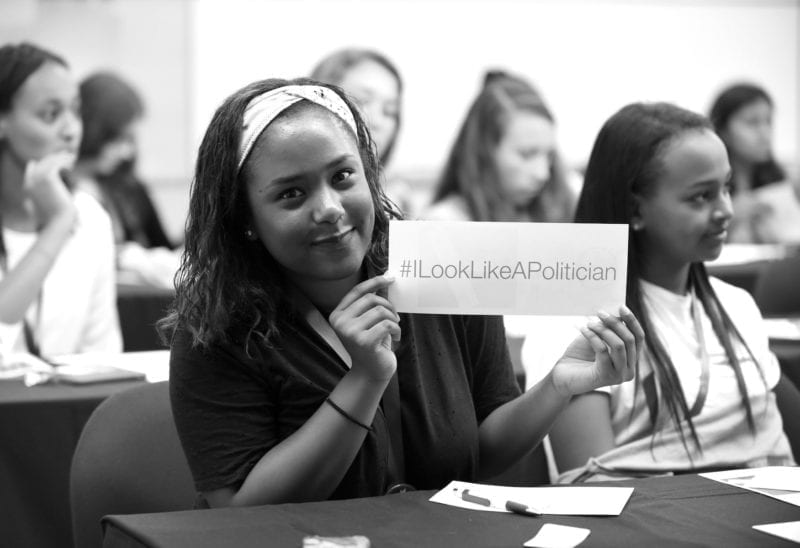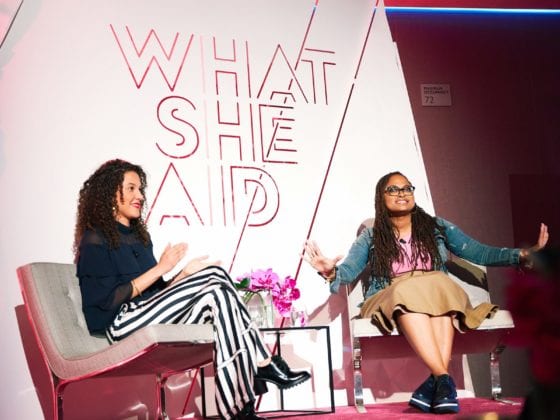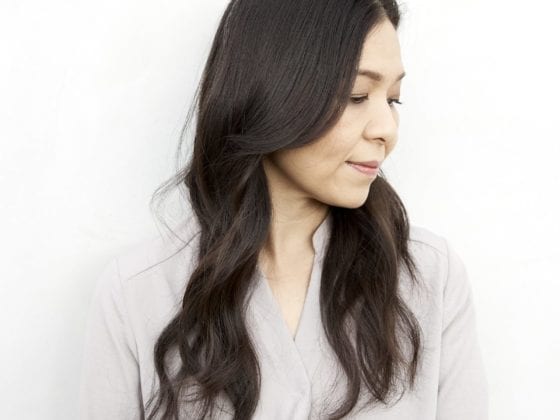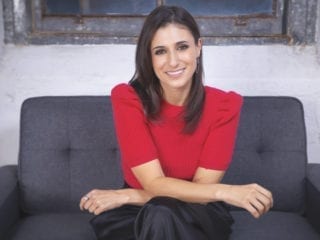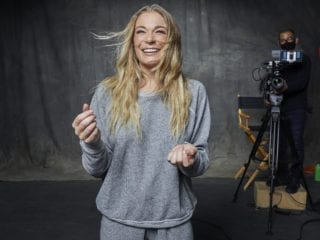You can’t have activism without awareness, and you can’t affect truly lasting change without equipping a younger generation to carry on the effort.
As part of Darling’s “Empowerment: From All Sides”campaign, we’re proud to highlight the work of Girl Up, an organization hosted by the United Nations Foundation engaging teenage girls in grassroots advocacy work and teaching them the skills necessary to start a movement wherever they are.
We got on the phone with Girl Up’s Co-Executive Directors, Anna Blue and Melissa Kilby, to discuss the uniqueness of their girl-led program, how it works on a local, national and global level, and why they believe that “if somebody is going to come along and actually change the world for girls, it’s going to be girls themselves.”
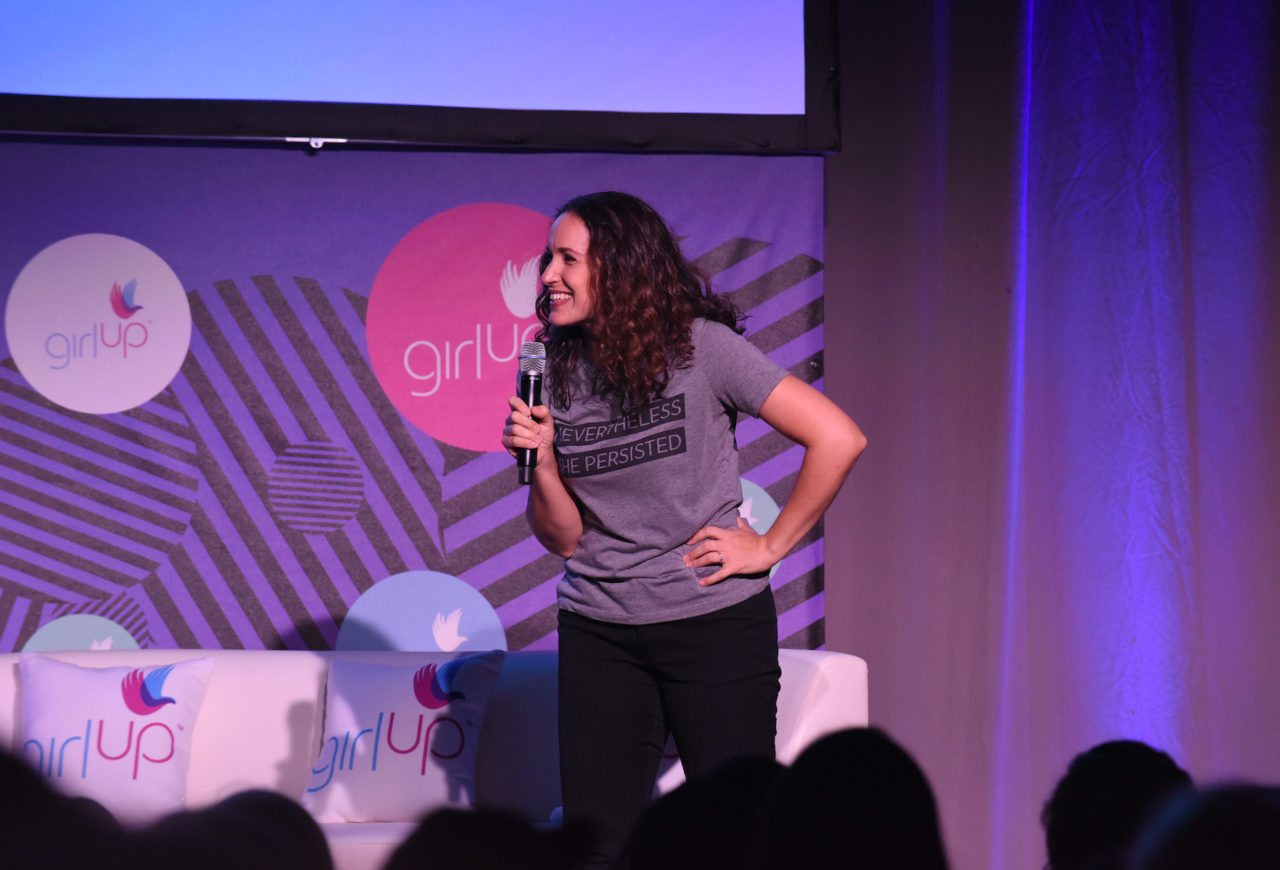
Nicole Ziza Bauer: In your own words, how would you define the work of Girl Up?
Anna Blue: Girl Up is a leadership development organization hosted by the UN Foundation with the unique lens of providing leadership development to young girls for social impact.
Typically, girls who come to us and join our leadership programs are actually coming because they want to make a difference in achieving global gender equality. They’re interested in changing the world and through that, through engaging with Girl Up, they’re learning these really incredible life-changing leadership skills – advocacy and fundraising and media and STEM and story-telling – everything that the girls need for them, in their eyes, to create change.
NZB: Is that primarily in the US?
Melissa Kilby: We launched Girl Up in 2010 with more of a US focus, but over the last couple of years we’ve seen girl leaders come to Girl Up from all over the world. We actually have Girl Up clubs in over 100 countries with 75% or so still as our US base, but that percentage is shifting on a tangible basis.
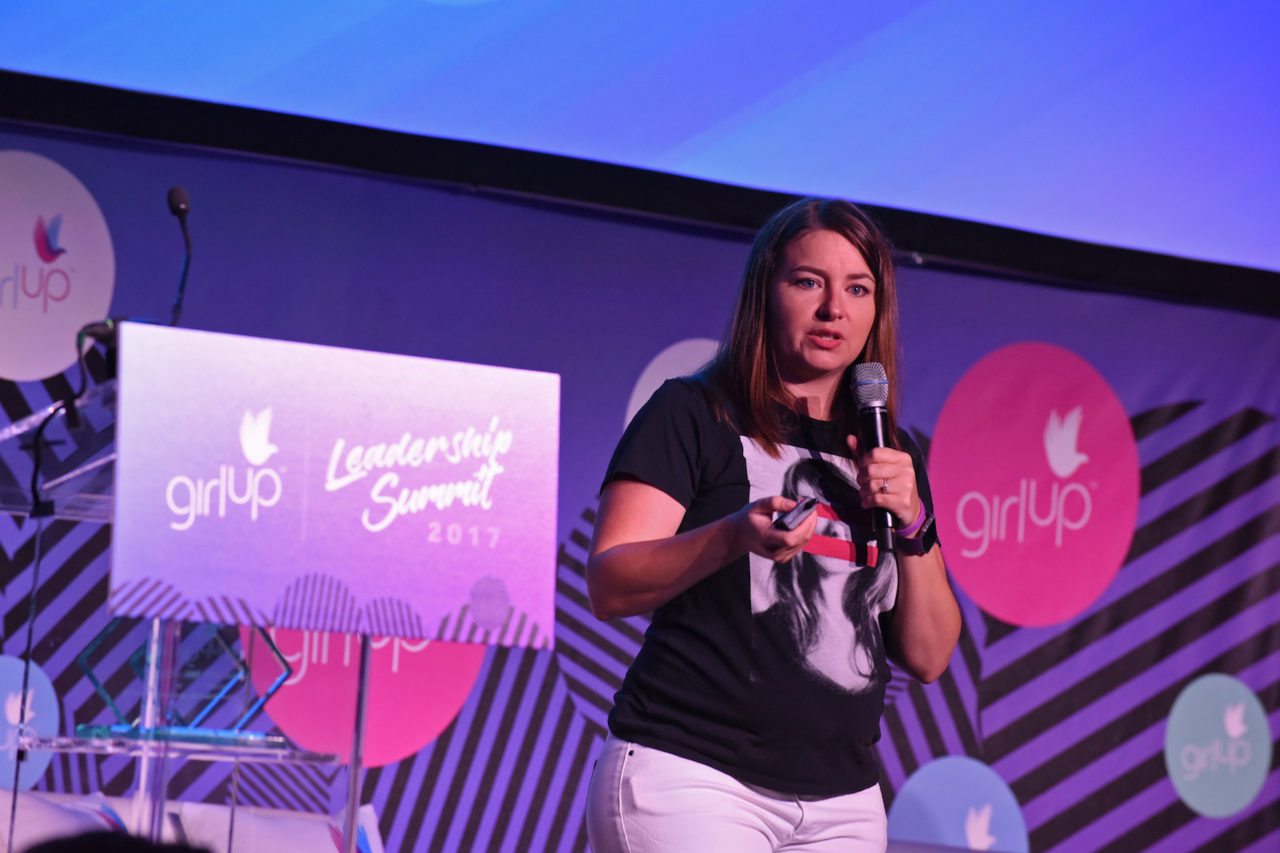
NZB: Would you say that Girl Up is tapping into a sentiment that already exists, or more so that you’re creating the awareness and engagement to begin with?
AB: I would say it’s both and that it’s actually changing. When we first launched years ago, this wasn’t the movement that was happening. There wasn’t the women’s marches and #MeToo and all of that. When we first started it was really actually looking at what issues and challenges were impacting girls in developing countries and [we] wanted to rally girls across the US initially in support of those girls in various ways.
And then, as the gender movement has started to grow and change shape and focus on domestic — not just here but also in other countries around the world — we’re looking at gender equality and saying, “This is an issue everywhere.” So, Girl Up is certainly ripping with the tide. We’re getting more and more girls who want to do something and feel like they’re making a difference. These aren’t just girls who want to post on Facebook, these are girls who want to actually be able to say, “I helped change this law” or “I helped fund this program” or “I created an app that is helping girls around the world.”
NZB: So it’s almost like you’re acting as the megaphone for the message and the heartbeat of these younger girls and how they want to get involved.
MK: Yeah, I would agree and the only thing I would add is that there’s actually training we’re giving them to do that. So, it’s the convening and the megaphone but it’s also the skills.
By starting a club, by recruiting their friends, by electing leadership, by setting a goal, by planning events, by creating this small organization within their school or their community or with their peers, [girls] are gaining these real tangible skills that are making them leaders in addition to having that activist megaphone and output.
What we always hear from the girls is that it’s so empowering to know that they’re part of something bigger. I think that gives them a lot of confidence and I think that’s also where the megaphone comes in, but they’re [also] gaining skills and they’re seeing their actions have an impact and that combined with this bigger Girl Up movement that’s global and large in scale all combines to show them that they can make a difference now. They have the skills and they also have the platform.
What we always hear from the girls is that it’s so empowering to know that they’re part of something bigger.
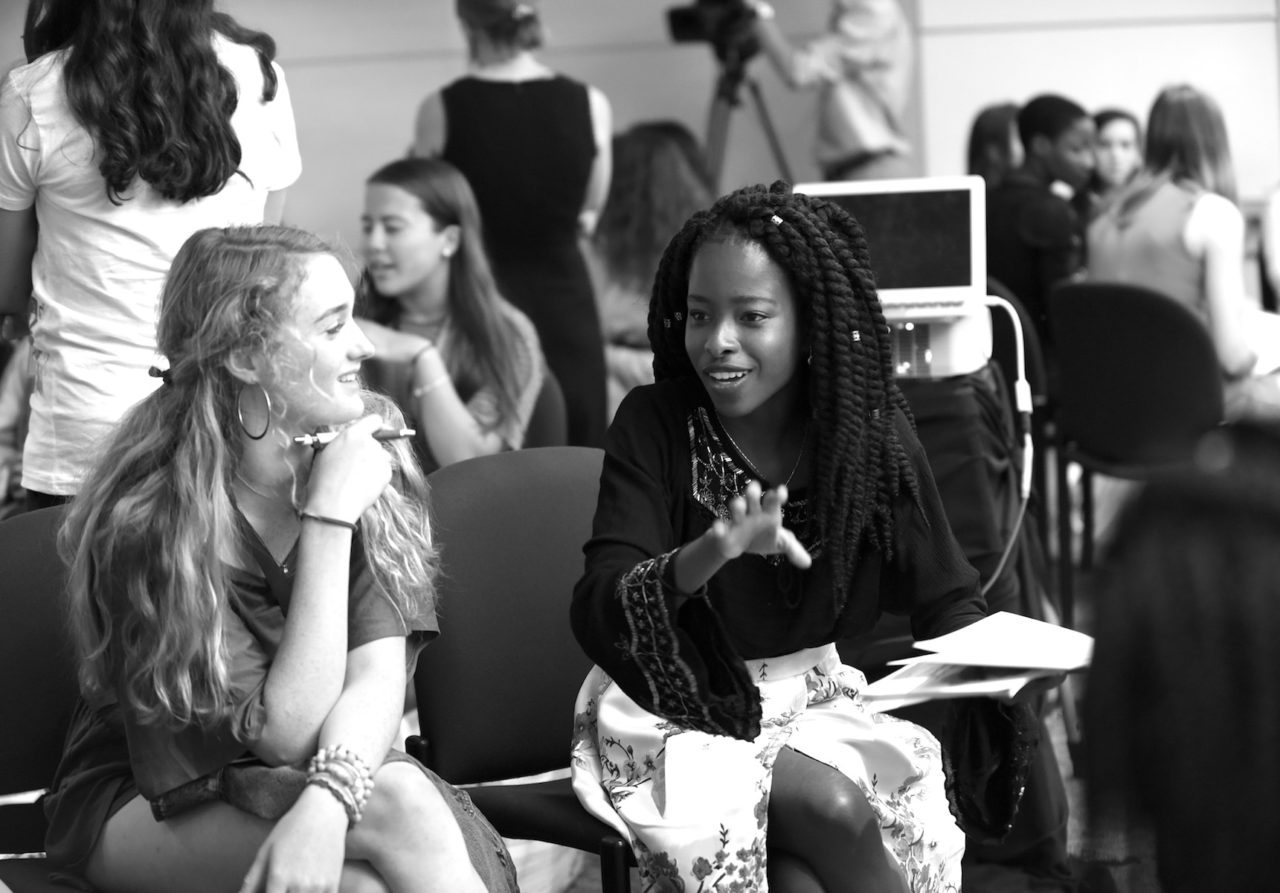
NZB: What are some examples of programs or ways Girl Up clubs work with their teen leaders?
MK: A couple of things stand out. We anchor the clubs’ actions around four areas: fundraising, advocacy, awareness-building and service. So a lot of the time, actions of club teams together will be in one of those areas.
For example, we’ll do club challenges that might run for a month or two and are really just a light-touch guidance from Girl Up of like, “Here’s what you could touch on this month. Here are some ideas.” We do a community service one in January around MLK Day and we ask girls to go into their communities and do service projects.
From a fundraising angle, one thing we’ve seen that Girl Up clubs really get excited about is a global 5k in the spring that’s a virtual 5k. Clubs organize these runs – they’re not getting permits and closing streets – but they’re organizing their club members and communities to sign up and register and fundraise. Then they all get together and run a 5k, but they’re doing that at the same time as 50 other clubs. So it’s this broader virtual moment of all of these clubs coming together to raise funds for a specific US partner.
Last year our clubs, I think we had over $50,000 raised through this virtual 5k, so it’s a cool way for the girls to plan an event, bring club members together but also reach into their schools and communities and have others be a part as both awareness raising, [they are] teaching others about the issues girls are facing in [a certain] country and how [a certain] UN program is working to help that, but then they’re also raising funds for that added level of social impact.
We’re getting more and more girls who want to do something and feel like they’re making a difference. These aren’t just girls who want to post on Facebook, these are girls who want to actually be able to say, ‘I helped change this law’ or ‘I helped fund this program’…
I think another area where we see the clubs coming together is around advocacy. In the past, that’s really been focused on Capitol Hill congressional advocacy on foreign policy and foreign aid. The girls have helped enact legislation to curb child marriage through foreign aid. They got legislation passed through Congress and signed into law called The Girls Count Act that was about birth registration. That was an awareness-raising experience for sure, but they were actually meeting with their congressional reps in districts and on Capitol Hill, clubs were having letter-writing parties, call-in parties, really that grassroots civic engagement. And they are diving into that while still in high school because it’s for other girls. They see the impact.
What’s really exciting as we look into 2018 and the future is that we know the girls took our training and know how to advocate, so they were applying that training locally and in their own states, even nationally, about the things they cared about. So as an organization, Girl Up is really saying, “We’re training you to be an advocate. You should advocate on the things you see that are barriers to gender equality, whether that’s something happening in your school, your town, something happening in the US or another country that you’re living in, or even globally, from that foreign policy perspective.”
That’s the type of thing we’re encouraging. And we’re also providing the resources and materials to help them do that.
NZB: What is Girl Up’s involvement on the local or school level?
AB: So, Girl Up staff doesn’t typically work directly with the schools. We have the mechanism in place where girls reach out on their own to their administration to get the club set up. It’s very organic, word of mouth, social media, how girls hear about Girl Up and then we support them to go to their school and get their club signed up.
Everything at Girl Up is girl-led, which I think is pretty unique. There isn’t a Girl Up facilitator or Girl Up staff member setting up a chapter, it’s very much the girls seeing themselves in this movement, recruiting a few friends to join them, navigating school administration, getting their club started, setting goals, running their meetings, all of that. By starting a club, that’s pretty much their first leadership skill right there.
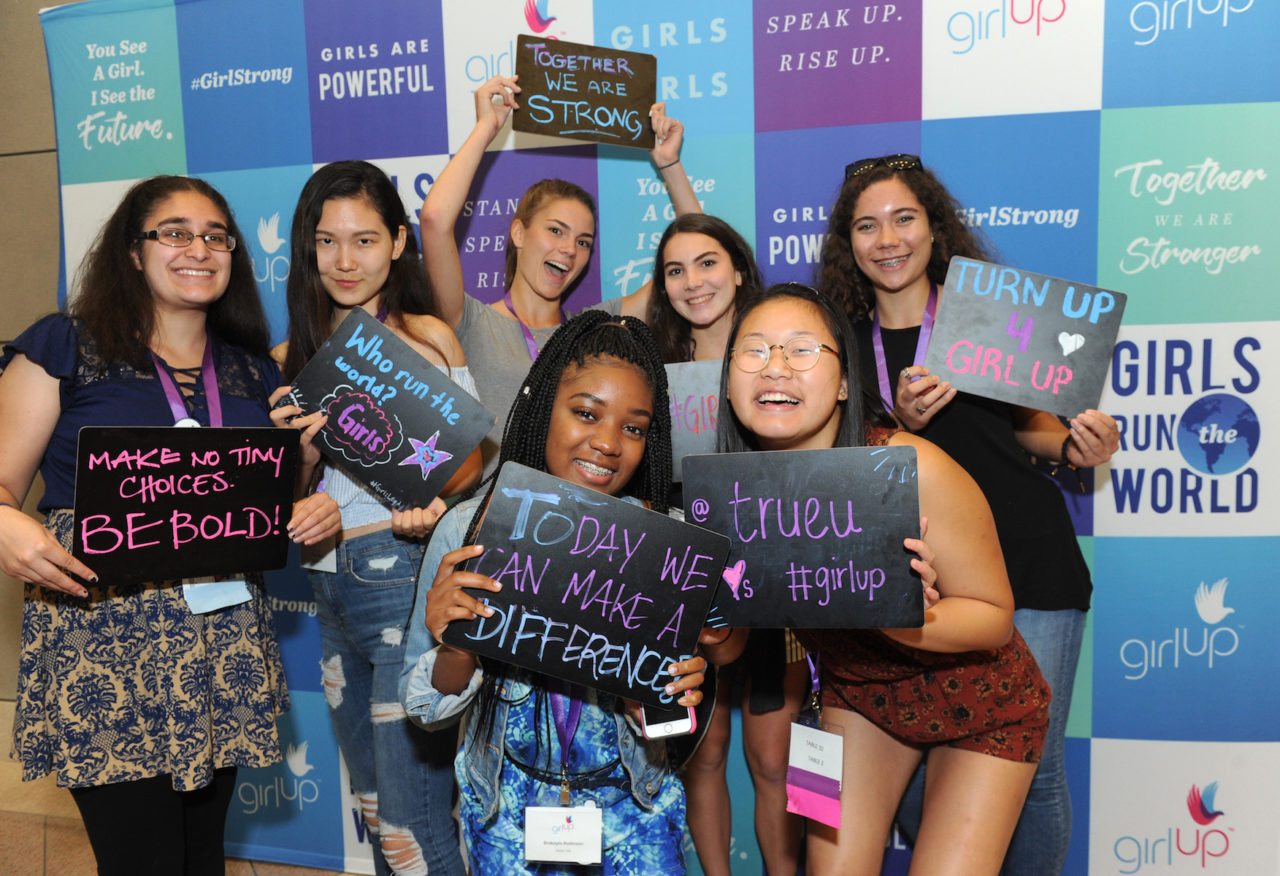
NZB: Lastly, and perhaps most importantly, why do you believe girls are key to changing the world?
AB: Leadership hasn’t yet been placed in women’s hands. We have the leaders here and there who make it, but generally speaking leadership globally is still very much male-dominated. [We’re] looking at that and also recognizing that every generation up until now has failed girls. We’re seeing that come to light thanks to social media and this 24-hour accessible news we have; we’re seeing the true state of girls and women all over the world but we’re still only catching glimpses of it.
So, we really very much believe here [at Girl Up] that seeing is believing. We’re seeing every day what these incredible girls are able to accomplish. So, we believe that if somebody is going to come along and actually change the world for girls, it’s going to be girls themselves.
MK: The only thing I would also add is that every time I’m around one of our girl leaders, I wish they could just take over now. Because they’re so full of hope and optimism but they’re also realistic and they’re smart.
We look at each generation that comes up as like, “Is this going to be the generation that makes the change?” And I really see something unique in this generation currently, the Gen Z that’s in high school and college now, and I hope that we as adults don’t screw that up for them. That we actually let them realize the potential that I see in them. It gives me so much hope for the future and for me, personally, that’s just another reason – in the actual girls that I meet every day — that I’m like, “I would trust you and follow you today, farther than some of our current leaders.”
[action_button]Feature Image via Diane Bondareff for Girl Up

